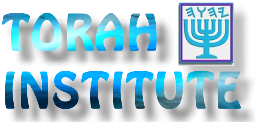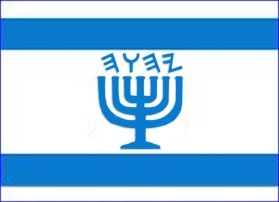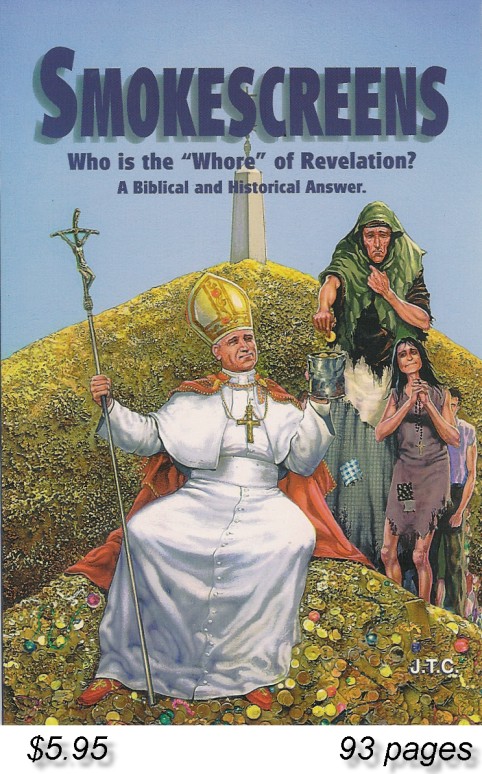
APOLOGETICS: (Beware of casuistry)
 “I just love this kinda’ stuff!”
“I just love this kinda’ stuff!”
A defensive method of argument.
An explanation revealing the true perspective of a subject as it is
being opposed by an illogical or deceptive position.
To put it simply, apologetics is “stronghold busting”.
From a sister:
Shalom to you, I received these questions from a brother and would like
to get your understanding here with my own so that he has witnesses in
this from the body.
Question 1:
During the creation, who is the “Us” that Elohim refers to ? (Genesis
1:26)
(Lew):
As I’ve been working more on the
BYNV
(read updated texts “Click
to look inside”), I’ve made modifications based directly on the
Hebrew research, which is still on-going. The Hebrew word “NESHAH” does
not mean
“let Us make”,
but rather is a single word cognate with “NEFESH”, or breath. This
text has no “Us”
at all, although my first printing of the BYNV inherits this mistaken
idea. The literal meaning
is in the context of
rulership
over all the Earth, with the character of Yahuah, “breathed into”
(NESHAH)
mankind.
It is expressed better in this improved translation of the text:
BERESHITH 1:26, 27 (BYNV):
26
“And Alahim said, “Breath into [NESHAH] Adam [humanity] a shared
essence, with a shared character, and let them rule
over the fish of the sea, and over the birds of the shamayim, and over
the livestock, and over all the arets and over
all the creeping creatures that creep on the arets.”
27And
Alahim ta created the man in His essence, in the essence of Alahim He
created him; male and female He created them.”
Question 2:
In the beginning, Yahveh created Adam and Hawwah. They bore two sons,
Qayin and Hebel. Why did Yahveh not recognise Qayin’s offering?
(Lew):
Scripture interprets the answer for us at Yahudah (Jude) 1:11, Hebrews
11:4, and 1 Yn. 3:12. There is nothing wrong with a grain
offering, but Yahuah knew the heart of both men. A humble and contrite
heart is not murderous and jealous, but rejoices to see others do well
and receive the loving kindness of Yahuah. Qayin had the same
heart as Balaam, since he sought recognition and gain for his offering.
Hebel was offering the best of that given to him by Yahuah, so he knew
that all he possessed was given to him. What do we have that we
did not receive? (1 Cor. 4:7).
Question 3:
Qayin killed Hebel out of jealousy. Then Qayin left and went to live in
Nod. There Qayin met his wife (Genesis 4:17). Where does she come from?
(Lew):
Adam and Kuah had many other sons and daughters over their centuries of
living. We only know the names of a small handful of their
offspring, and their offspring were also having their own children. The
restriction to not marry with close relatives came long after the Great
Flood. Even Abraham was married to one of his father’s daughters.
The teachings about “pre-Adamites” are imaginary tales, and only attempt
to bring the revealed Word into question. Qayin took a woman
(ashah) whose name was Auan, according to the book of “Jubilees”
(Yobel). Auan was a descendant to Adam and Kuah, perhaps directly, or by
way of other descendants. Women in those days probably began to
bear children almost as soon as they reached a reproductive capacity.
When we flatten time and make assumptions that Auan was the same age as
Qayin, Adam and Kuah’s first-born son, we are operating in the dark.
One should not build on anything constructed in the dark.
Question 4:
Yahveh says to Noah to take seven pairs of all clean creatures and a
male and female of every unclean creature. How did they know what was
clean and unclean?
(Lew):
All the clean animals were suitable for being offered in the way Hebel
performed his offering. One cannot offer something unclean, so
obviously all people already knew the distinction. Many also
stumble over what is not given in other texts, and they assume the texts
were written for people without any knowledge of the Torah. This is why
Paul speaks of those who can only accept “milk” and not strong food
(i.e. Hebrews 5:12).
The diet of the clean animals is one way to distinguish them from the
unclean ones, but we have to realize mankind knew what was unclean was
not even “on the table”.
Question 5:
Then after the flood, Yahveh says to Noah “Every moving creature that
lives is food for you.” (Genesis 9:3)
(Lew):
What had already been declared to be suitable for food among the moving
animals is how we understand this passage, since to establish a matter
we must have at least two or more witnesses. Many are led astray
by those having a darkened eye when a verse is made to stand alone,
apart from the whole. Notice how the clean animals were given for food
“as I gave the green plants”. There were conditional aspects in the
edible plants, so the edible animals had to first be “for food”, as
distinct from those not for food. The Torah is not for the logical
mind, but for the illogical mind. A logical mind performs
according to the Torah automatically. The mind without logical
thinking processes needs the Torah to guide it, and that mind will grow
to think “righteously”. Righteousness is cleanliness.
Unrighteousness is uncleanness.
3“Every
moving creature that lives is food for you. I have given you all, as I
gave the green plants.”
(Lew):
The phrase
“as I gave the green plants”
is the key to understanding the distinction, along with other texts that
guide us into “all Truth”. The first part is a piece of the
puzzle, not the whole picture. All plants are not for food, but those
that are food Yahuah has given them all.
Question 6:
In Genesis 10:5 and 10:20 and 10:31 it refers to "according to their
languages" and then later in 11:6 it says they all have one language.
Lew:
In all the verses of chapter 10, the descendants of Noak are listed in a
broad context. The chapter explains how the nations descended from Noaks
descendants, and where they lived over a long span of time out into the
future. If we take one element out, such as language, and make it seem
to apply to a time period before the next chapter, we have to also
assume all the nations existed that are being described as well.
That is not the case at all.
At verse 32 we see the information given in chapter 10 is a summary,
given before the nations developed, and before they were divided on the
Earth (that division is explained in chapter 11). The text says
“from these”
the nations were divided,
“after the flood”.
The next chapter opens with HOW the nations became divided, and it was
done by Yahuah confusing the languages.
32“These
were the clans of the sons of Noak, according to their generations, in
their nations.
And from these the nations were divided on the arets after the flood.”
Chapter 11 begins by explaining that everyone was bunched-up, and spoke
one language. Yahuah implemented a plan that would disperse them into
the whole wide world.
These were very interesting questions, and I hope the Scriptural
witnesses help answer them satisfactorily.
brother Lew

Order BYNV at: http://www.torahzone.net/
TAKE TIME TO VISIT THE BLOG, YOUR COMMENTS WELCOME
Amazon Kindle, BYNV:
You can review the text without purchasing it.
To review, or download the BYNV Kindle (and save shipping):
Visit the Torah Institute YouTube Channel:
http://www.youtube.com/user/TorahInstitute?ob=0&feature=results_main
BYNV: A translation for the next generation
Is the author of Revelation still alive?
WHAT IS THE "GOSPEL"? The true message is a SECRET
A FEW COMMENTS ON THE WORD "CHRISTIAN" What were they REALLY called?
Q: Where did we get the form "JESUS" from?
JESUITS'S EXTREME OATH OF INDUCTION
SHORT ARTICLES: CLICK HERE TO VIEW TITLES
WHAT ABOUT THAT DOME - KIPA or YARMULKE
SAMBUCOL LOZENGES do they combat viruses?
BACK TO FOSSILIZED CUSTOMS HOMEPAGE
Strawberry Islands Messianic Publishing, Louisville KY
The Torah is out there. I want to obey.
TORAH ZONE: FOSSILIZED CUSTOMS ARTICLES
PAGAN CHRISTIANITY THE ORIGINS OF OUR MODERN CHURCH PRACTICES Nazarene Israel
CHRISTIAN ~ IS THIS WORD A GOOD LABEL, CONSIDERING IT HAD A PREVIOUSLY PAGAN USAGE?
ISRAEL YAHWEH Yahuah 144,000 WEBINAR
Mr. Electricity Alan White Louisville KY





